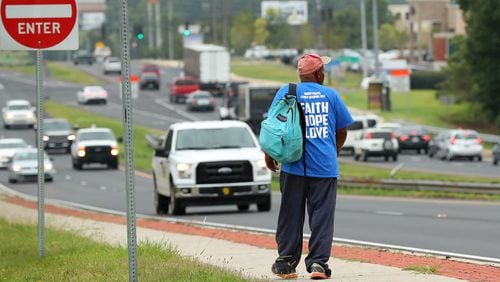Georgia needs to target issues around mental health and substance abuse if it wants to address the needs of the state’s homeless population, a state Senate committee said Monday.
The study committee released nine recommendations that it says will improve access to mental and behavioral health services, and in turn keep people off the streets.
"There's (potential for) quite a few pieces of legislation revolving around mental health and substance abuse — and I think that's a direct correlation with homelessness," said state Sen. Renee Unterman, R-Buford, the chairwoman of the committee.
“It is a very complicated issue, but just because it’s complicated, you shouldn’t push it aside, because eventually it’s going to bubble up,” Unterman said.
The group has met since September to take testimony on problems and possible solutions affecting the homeless, including the lack of transitional housing for those who have been recently released from prison or addiction rehabilitation programs.
There are more than 10,000 homeless people in Georgia according to a federal count done in January. That number is down about 25 percent since 2015.
Members voted to encourage the General Assembly to help locate additional housing for those who qualify for the Georgia Housing Voucher Program.
The voucher program provides rent assistance to those who have mental illness and are chronically homeless.
Unterman said though it can be difficult to get additional money for new or existing programs, she believes the study group has helped elevate the issue.
“A lot of time this issue is considered a dirty part of society,” she said. “No one wants to think about either living in the streets, living in extended stay, all the kids in schools that don’t have a home to go home (to) at night. … Even if I can’t solve the issue, I can bring the issue to the forefront.”
About the Author








